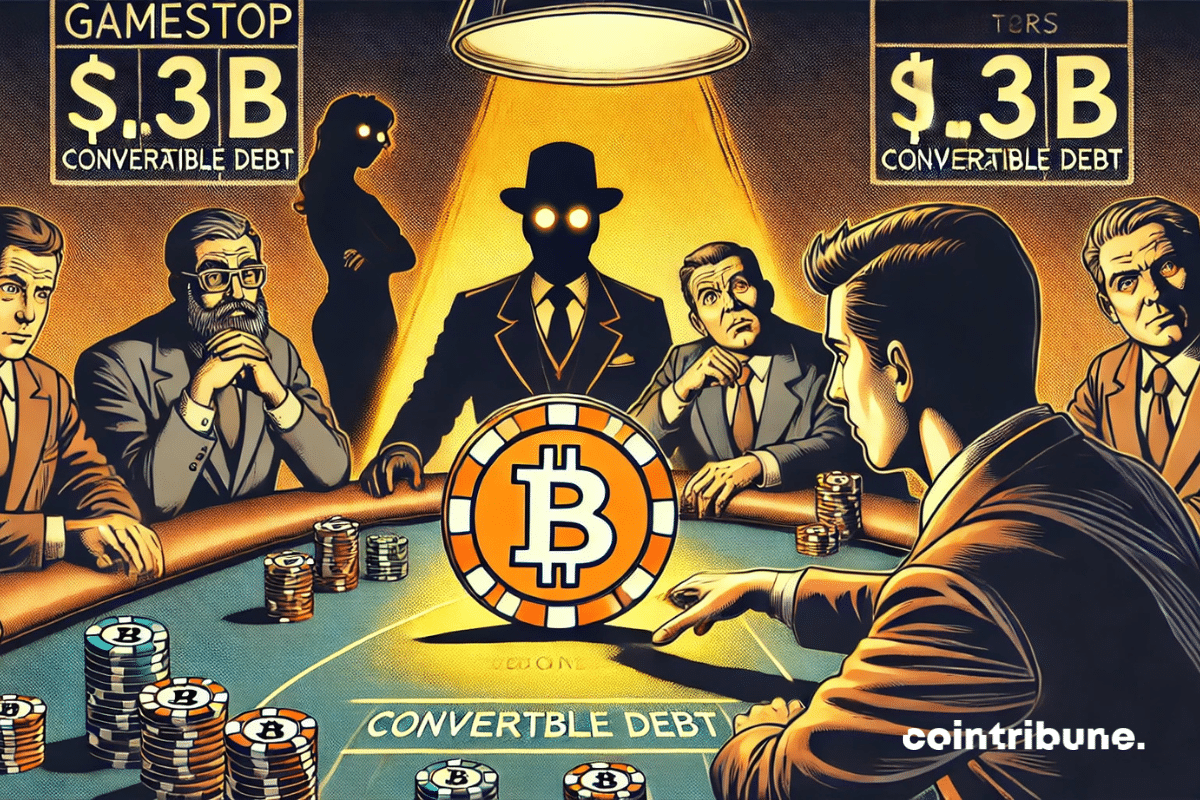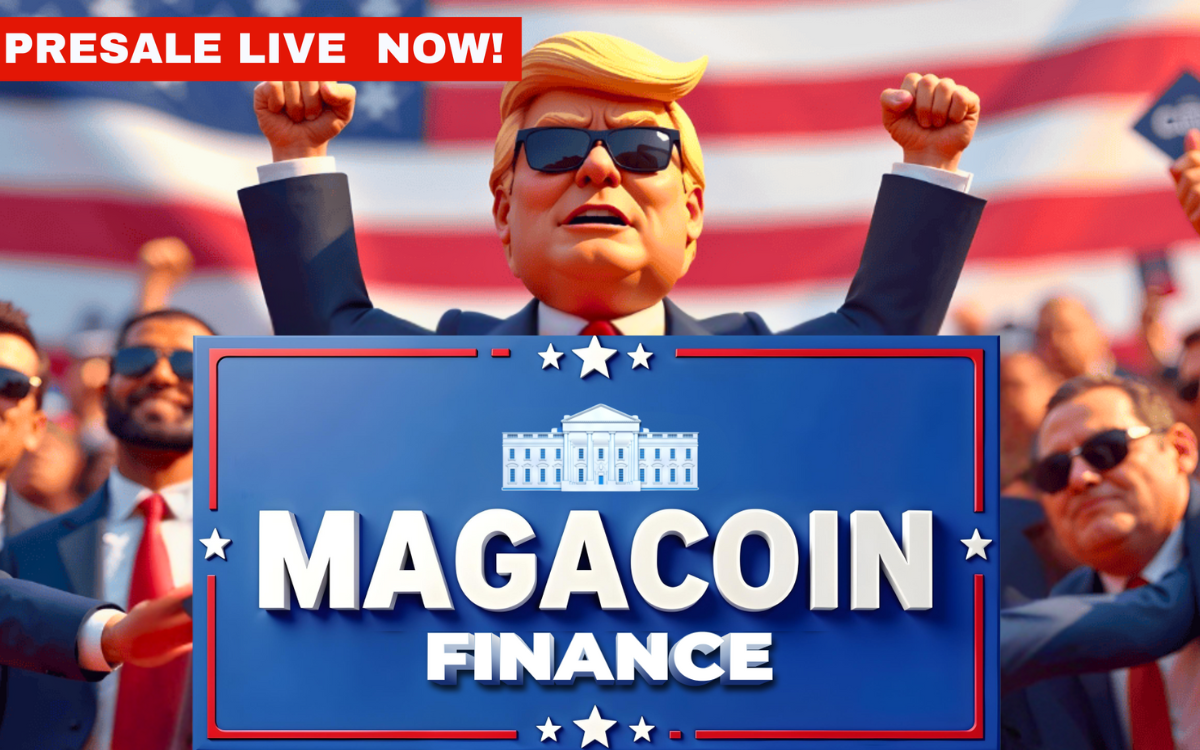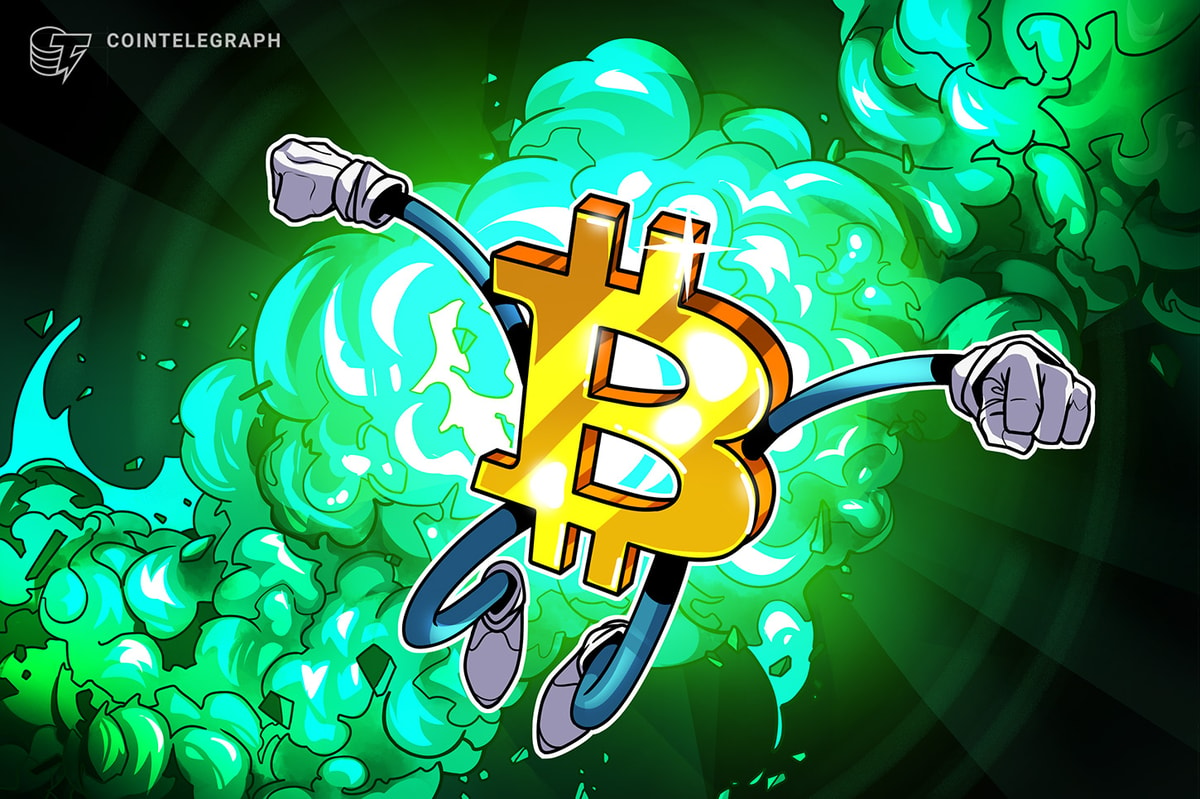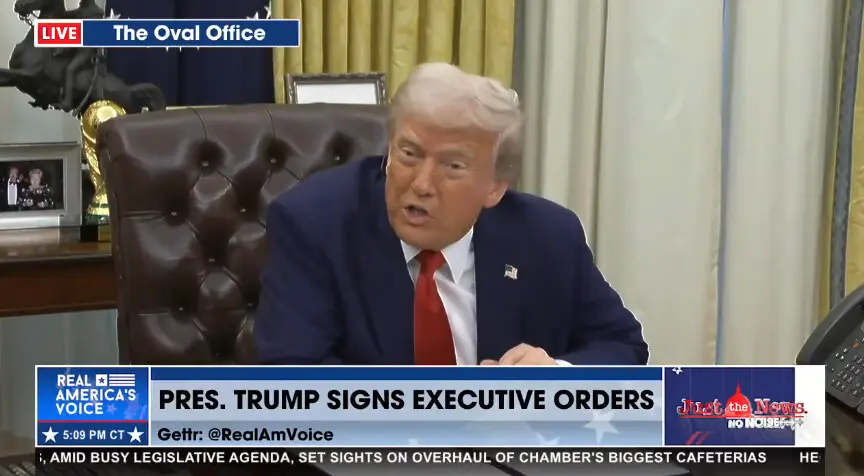 CaryptosHeadlines Media Has Launched Its Native Token CHT.
Airdrop Is Live For Everyone, Claim Instant 5000 CHT Tokens Worth Of $50 USDT.
Join the Airdrop at the official website,
CryptosHeadlinesToken.com
CaryptosHeadlines Media Has Launched Its Native Token CHT.
Airdrop Is Live For Everyone, Claim Instant 5000 CHT Tokens Worth Of $50 USDT.
Join the Airdrop at the official website,
CryptosHeadlinesToken.com
12h05
4
min read 
The video game giant lost 3 billion dollars in the stock market after announcing its plan to buy bitcoin. Investors doubt this strategy, suspected of masking the company’s structural difficulties.
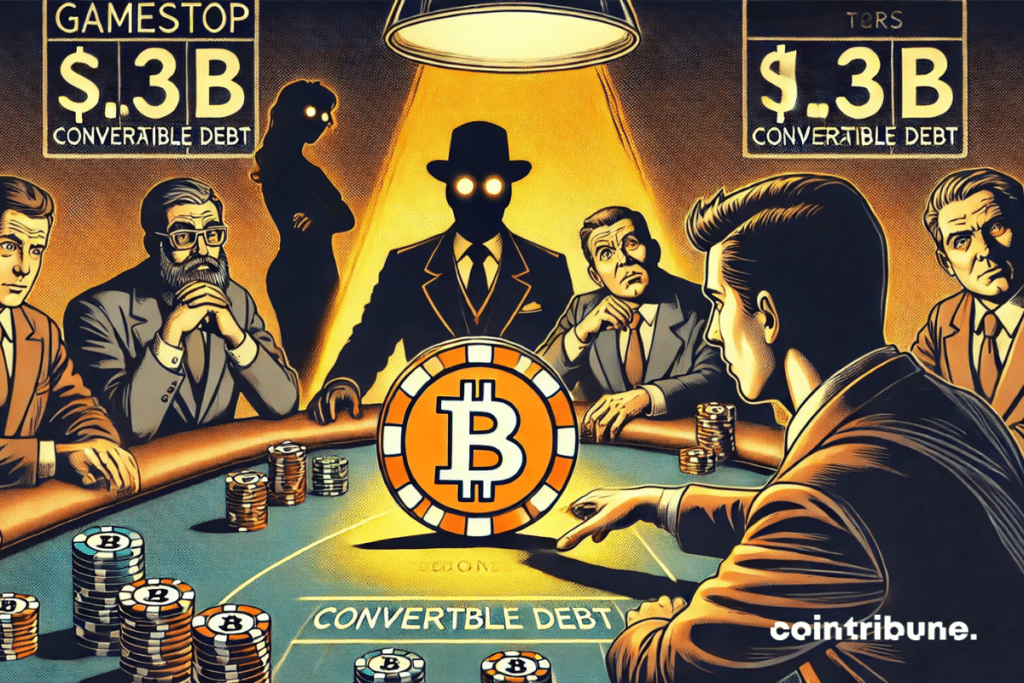

GameStop injects 1.3 billion into Bitcoin and collapses
On March 26, 2025, GameStop announced its intention to use the proceeds from a 1.3 billion dollar convertible debt offering to purchase bitcoin.
This announcement came a day after the company proposed to build reserves in cryptocurrency, particularly in bitcoin and dollar-pegged stablecoins.
Initially, investors welcomed this news, pushing up GameStop’s stock by 12% on the very day of the announcement.
However, sentiment quickly reversed the following day. On March 27, the stock fell by nearly 24%, leading to a loss of about 3 billion dollars in market capitalization, according to Google Finance data.
This turnaround in the markets highlights growing concerns about the strategic direction of the company.
According to Bret Kenwell, American investment analyst at eToro, “investors are not necessarily optimistic about the underlying business” and are questioning the viability of GameStop’s business model.
A controversial strategic change in an uncertain context
GameStop’s decision is part of a growing trend among publicly traded companies choosing to integrate bitcoin into their treasury. This approach has notably been popularized by Strategy (formerly MicroStrategy), which has spent over 30 billion dollars to acquire Bitcoin since 2020.
The board of directors of GameStop unanimously approved this new investment policy, allowing for the acquisition of bitcoin and stablecoins.
The company currently has significant cash reserves, reaching 4.77 billion dollars as of February 1, 2025, compared to 921.7 million the previous year, giving it considerable flexibility.
However, this strategic shift comes in an unstable macroeconomic context, particularly marked by the trade wars sparked by tariffs set by American President Donald Trump.
Bitcoin has experienced a decline of about 7% since the beginning of the year, hovering around 87,000 dollars on March 27, 2025, adding a layer of uncertainty to this initiative.
A risky bet for the future?
The cold reaction from financial markets reveals a major concern: is GameStop trying to hide the flaws of its traditional business model behind the hype for bitcoin? As explicitly stated by Bret Kenwell, an analyst at eToro: “If bitcoin becomes the pivot of their strategy, what happens to the rest of their business?“
This diversification into crypto, while bold, exposes the company to unpredictable fluctuations in the crypto market. A significant drop in the bitcoin price could considerably weaken GameStop’s finances, already in the midst of transformation after several years of uneven performance.
The massive sell-off of shares demonstrates that investors doubt the relevance of this strategy in light of the fundamental challenges the company faces in its original sector.
Nevertheless, by aligning with new economic dynamics, GameStop may be trying to capture the attention of a new generation of crypto-savvy investors and shareholders.
At a time when the video game sector is evolving towards digital and potentially decentralized models, this approach could foreshadow a deeper strategic repositioning for the company. Only time will tell if this initiative will allow GameStop to rebound sustainably or if it will only exacerbate the uncertainties surrounding its business model.
Maximize your Cointribune experience with our “Read to Earn” program! For every article you read, earn points and access exclusive rewards. Sign up now and start earning benefits.
Passionné par le Bitcoin, j’aime explorer les méandres de la blockchain et des cryptos et je partage mes découvertes avec la communauté. Mon rêve est de vivre dans un monde où la vie privée et la liberté financière sont garanties pour tous, et je crois fermement que Bitcoin est l’outil qui peut rendre cela possible.
DISCLAIMER
The views, thoughts, and opinions expressed in this article belong solely to the author, and should not be taken as investment advice. Do your own research before taking any investment decisions.







